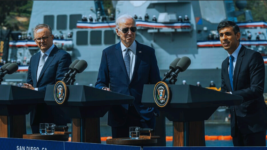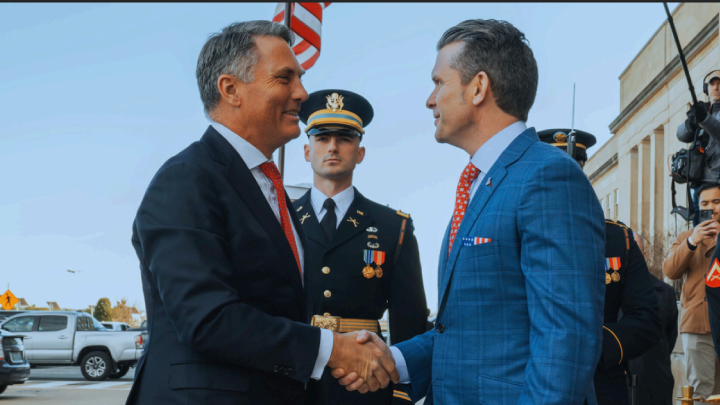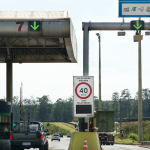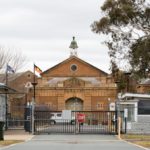AUKUS: The Fleecing of the Australian Public for US Strategic Interests

In its recent report into the AUKUS pact and its increasingly fabled Australian-owned nuclear-powered submarines (SSN), Australians for War Powers Reform (AWPR) asserts that the “AUKUS pact has become a textbook example of how to disenfranchise the community, providing almost no transparency or democracy in a sweeping decision which will affect Australia for decades”.
AWPR makes this assertion in opening its 20 March released AUKUS and the Surrender of Transparency, Accountability and Sovereignty report based on the fact that the Australian public and the federal crossbench of parliament were given no heads up prior to the 16 September 2021 announcement of the pact, while the Labor opposition was only informed the night prior.
AUKUS is a security pact between the US, the UK and us, which has a focus on supposedly deterring an aggressive China, despite the aggressor seemingly being headquartered in Washington DC, and its central feature on announcement, Australia acquiring eight of its own SSN via a technology sharing arrangement, has increasingly been understood as a pipe dream or a carrot of enticement.
Labor agreed to the AUKUS “enhanced trilateral security pact” on the spot and once elected, the Albanese government embraced the arrangement, with Australian defence minister Richard Marles having signed a second agreement, AUKUS 2.0, last August, and it makes clear that the US and the UK can pull out of the SSN deal at any point if it poses an unreasonable risk to their own defence.
The AUKUS clincher is that even if the Australian-owned submarines never materialise over the 30-odd years of the deal, AUKUS Pillar I also involves the establishment of Submarine Rotational Force-West, a joint US and UK SSN presence at Western Australia’s HMAS Stirling base, which means the foreign owned subs can step in to replace the Australian boats in any eventuating war against China.

Those elusive submarines
AUKUS Pillar I is supposed to comprise of the establishment of SRF-West, the joint US-UK rotational force of five SSN, in WA by 2027. Australia is to further acquire three to five second-hand Virginia class SSN from the US starting in the 2030s, while five UK-designed AUKUS SSN are slated to be built at the Osbourne shipyard in South Australia’s Port Adelaide beginning in the 2040s.
Our nation is to contribute around AU$4.6 billion each to the US and UK submarine building bases, prior to the commencement of SSN acquisition. Australia has recently handed over an initial AU$800 million investment toward US shipbuilding capacity, along with AU$289 million to that in the UK. This country is also in the midst of a AU$5 billion upgrade of local submarine-building capacity in SA.
However, in keeping with the lack of transparency toward any consulting of the Australian public, AUKUS 2.0 has also established a number of “political commitments” between the US, the UK and this country, and what these comprise of is set out in a “secret non-legally-binding understanding that accompanies the public agreement”. So, in other words, it’s classified.
“Australian sovereignty over the second-hand nuclear-powered submarines and any AUKUS submarines is illusory,” the AWPR authors of the new report make clear. “Australia has lost sovereignty over its submarine capability in total.”
“The undisclosed ‘political commitments’ take the secrecy around AUKUS to new depths,” the report continues, “and raise huge additional concerns about what additional risks Australia is taking to please our allies.”
Not in our interests
The AWPR report then goes on to explore the different issues surrounding the viability of the AUKUS pact, including the fact that AUKUS was produced without actually meeting Australian strategic concerns.
The 2020 Defence Strategic Update that was in place at the time AUKUS was announced considered “the prospect of a high-intensity military conflict in the Indo Pacific” was “still unlikely”, and this included between the US and China. But despite this, it insists we maintain a “forward defence” policy, which entails a presence beyond our borders in the region in order to deter others, like China.
AWPR underscores that the AUKUS announcement and the fact that Australia would be acquiring nuclear-powered attack subs, rather than its current Collins class defensive boats, has caused frayed relations with neighbouring South Pacific countries, as we didn’t warn or consult them on the matter, and this is further exacerbated by the desire of other nations to keep the region nuclear-free.
The report outlines that Australia acquiring SSN likely undermines the 1968 Treaty on the Non-Proliferation of Nuclear Weapons, which aims to prevent the spread of nuclear arms.
Another concern triggered by this is that the US is building storage in the Northern Territory to hold six nuclear-capable B-52 bombers, and because Canberra respects the US policy of ‘warhead ambiguity’, we won’t know if they contain nuclear missiles.
AUKUS also involves the storage of nuclear waste, including high level nuclear waste. Passed in October, the Australian Naval Nuclear Power Safety Bill 2024 allows our government to declare any area fit for a nuclear waste facility without consultation of anyone, including First Nations traditional custodians.
“This is a particularly authoritarian outcome because the matter of nuclear waste disposal has been highly contentious in Australia,” AWPR further sets out, “with several failed attempts to impose nuclear waste dumps for even low-level waste on unwilling communities.”
In relation to low level waste to be produced by locally stationed SSN, the Australian Submarine Agency (ASA) is to establish a controlled industrial facility for waste at WA’s HMAS Stirling, while there’s also been uproar in South Australia after the announcement that a second nuclear waste dump is to be established at the Osbourne submarine yard at Port Adelaide.

The US is beating the drums
“From earlier on, I came to the view that AUKUS was not in the national interest and most certainly entails a loss of sovereignty for Australia,” said former Australian foreign affairs minister Bob Car, on launching the AWPR report into the unviability of the AUKUS agreement.
“Given the lack of consultation the Australian public are rightly very sceptical about AUKUS. And given that we now have a very erratic US president who is upending international norms, it is clear that the AUKUS project is under a cloud,” the former Labor leader added.
The AWPR authors further stress that the Australian public has been bombarded with the idea that our nation is under some sort of threat of imminent attack from China, when nothing could be further from the truth.
Carr has also noted in the past that the Australian media commenced propagating a ‘China panic’ in 2017, and since the 2021 AUKUS announced this has increased at apace.
AWPR further notes that when Peter Dutton was defence minister in the last years of the Morrison government, he suggested it was “inconceivable” that this nation would not enter a conflict against China if Beijing attempted to retake control of Taiwan, while his former righthand man, then Home Affairs secretary Mike Pezzullo was banging on about the “drums of war” being sounded.
Established in 2012, Australians for War Powers Reform is a civil society group advocating for a change to how this nation enters into a foreign conflict, as right now it is down to a small number of government ministers led by the PM, and known as the National Security Committee.
AWPR considers the choice as to whether Australia should again follow the US into a foreign theatre of war should be a whole-of-parliament decision, which, in turn, triggers the sentiment of the entire Australian constituency.
“At every step, the public have been shut out of the process despite the fact that this is a multi-decade project with enormous costs for taxpayers,” AWPR spokesperson Kellie Tranter set out.
“This report raises many serious questions that should alarm the community. AUKUS in its current form should not proceed,” the human rights lawyer added in conclusion.
“At the very least AUKUS should be subjected to a rigorous inquiry before more billions are spent on it.”







